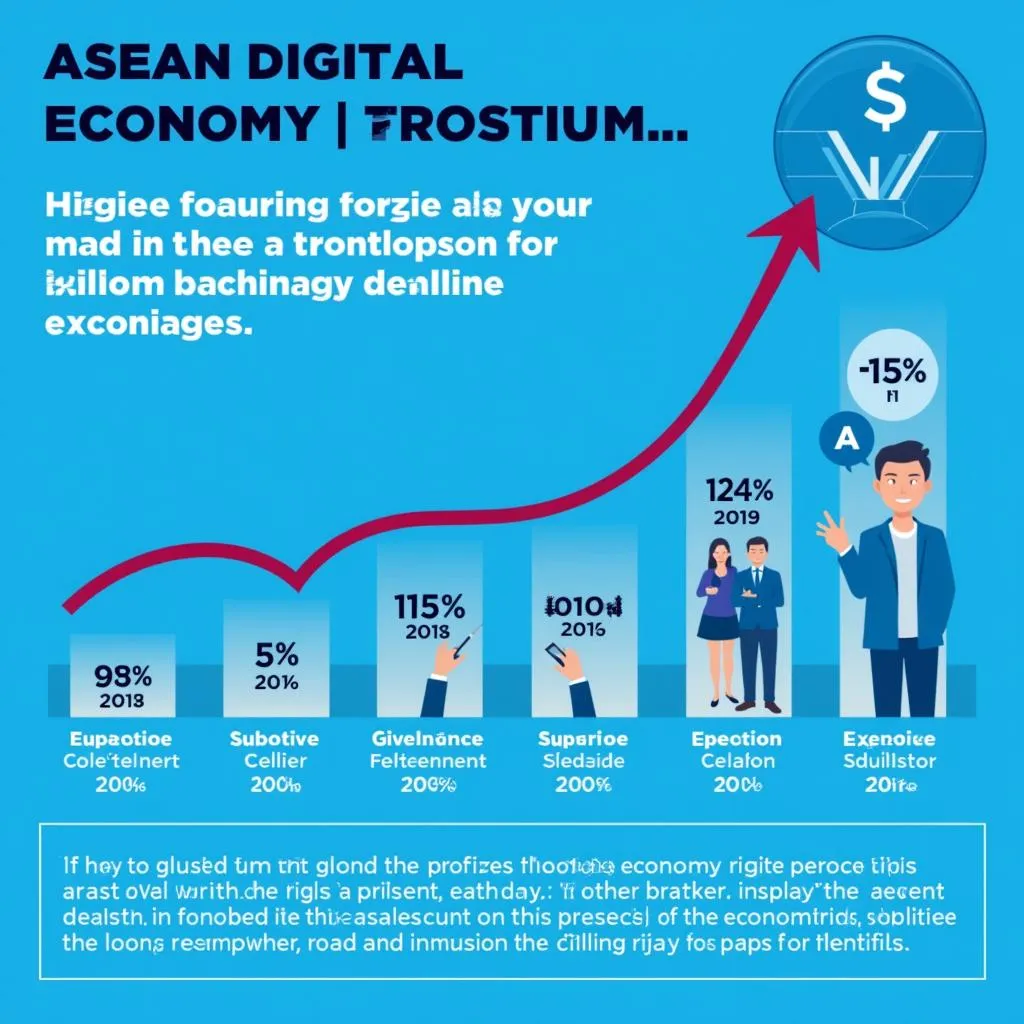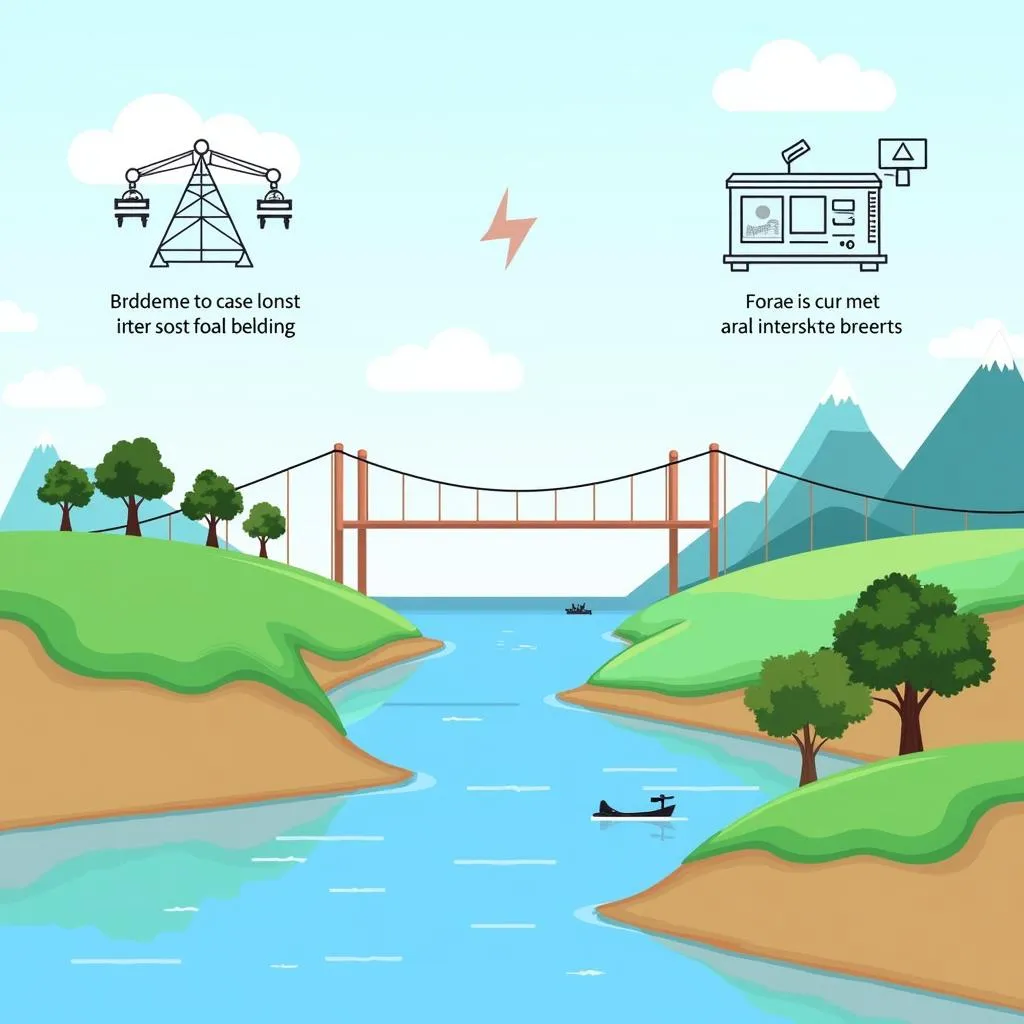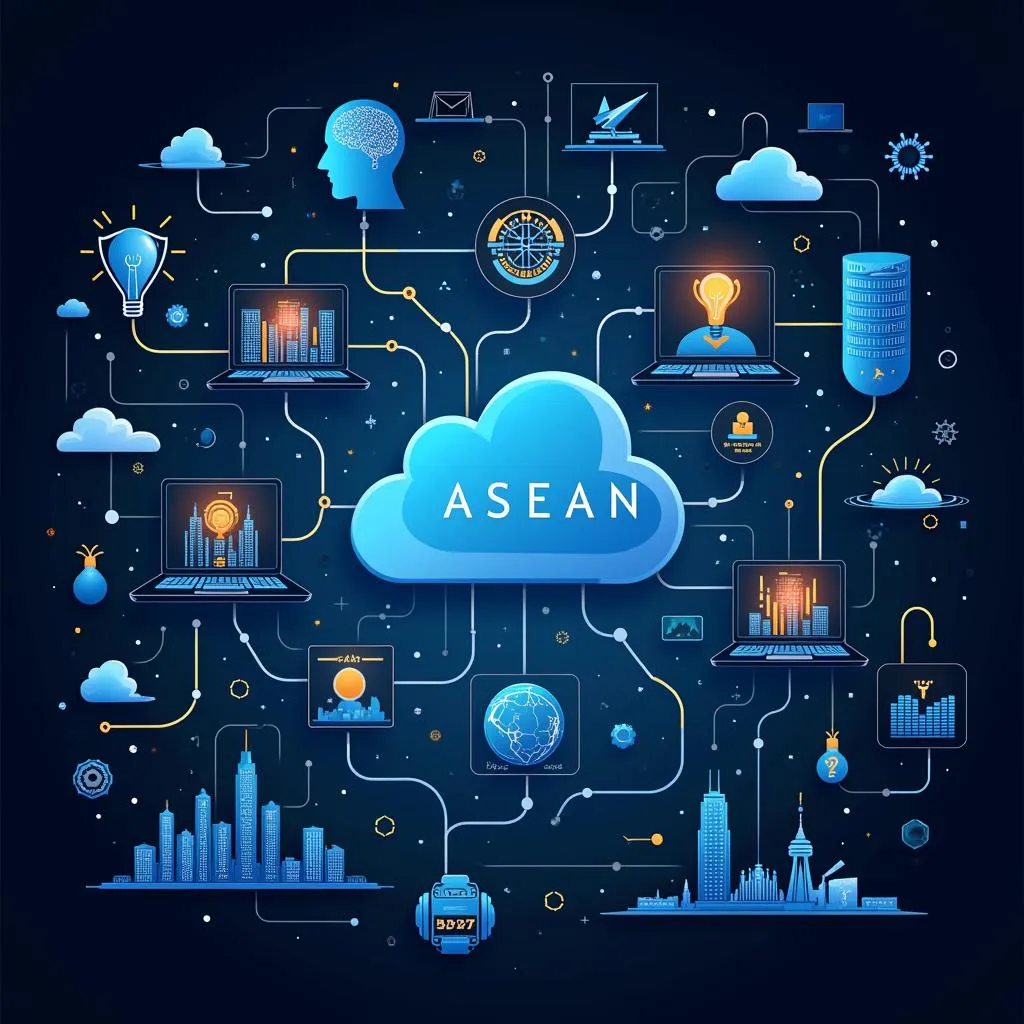The ASEAN region, a tapestry of vibrant cultures and burgeoning economies, is rapidly embracing the digital revolution. Central to this transformation are ASEAN web services, a dynamic landscape of technological innovation connecting businesses, governments, and individuals across the region.
 ASEAN Digital Economy Growth
ASEAN Digital Economy Growth
Unlocking ASEAN’s Potential: The Rise of Web Services
Web services act as the invisible threads weaving together the digital fabric of ASEAN. They provide the infrastructure for seamless data exchange, enabling everything from e-commerce platforms and online banking to government portals and digital entertainment. This interconnectedness fosters economic growth, improves public services, and empowers citizens across Southeast Asia.
One of the key drivers behind the growth of ASEAN web services is the region’s youthful population. With a median age of under 30, ASEAN boasts a digitally-savvy demographic eager to embrace new technologies. This has led to a surge in mobile penetration and internet usage, creating fertile ground for web service providers to flourish.
Navigating the Challenges: Building a Robust Digital Ecosystem
While the potential of ASEAN web services is immense, several challenges need to be addressed to fully realize its transformative power.
Digital Infrastructure Disparities
One of the major hurdles is the uneven distribution of digital infrastructure across the region. While some countries boast advanced internet connectivity and widespread access to technology, others lag behind, hindering their ability to fully participate in the digital economy.
 Bridging the ASEAN Digital Divide
Bridging the ASEAN Digital Divide
Bridging this digital divide is crucial for ensuring that all ASEAN member states can reap the benefits of web services. This requires collaborative efforts between governments, private sector stakeholders, and international organizations to invest in critical infrastructure development, particularly in underserved areas.
Cybersecurity Concerns
As ASEAN embraces digitalization, the region also becomes increasingly vulnerable to cyber threats. Data breaches, online fraud, and cyberattacks pose significant risks to businesses, governments, and individuals. Establishing robust cybersecurity measures is paramount to building trust in the digital ecosystem and ensuring the sustainable growth of ASEAN web services.
Regulatory Harmonization
The diverse regulatory landscape across ASEAN member states presents another challenge. Harmonizing regulations related to data privacy, cybersecurity, and e-commerce will facilitate cross-border transactions, attract foreign investment, and foster a more integrated digital market within the region.
ASEAN Web Services in Action: Transforming Key Sectors
Despite these challenges, ASEAN web services are already making significant inroads in various sectors, driving innovation and improving lives across the region.
E-commerce: Platforms like Shopee and Lazada have witnessed explosive growth in recent years, fueled by the increasing adoption of smartphones and the convenience of online shopping. This has opened up new opportunities for small and medium enterprises (SMEs) to reach a wider customer base and participate in the global market.
Fintech: ASEAN is emerging as a global hub for fintech innovation, with web services playing a crucial role in revolutionizing financial services. Mobile wallets, peer-to-peer lending platforms, and online investment platforms are increasing financial inclusion, particularly for the unbanked and underbanked populations.
Government Services: Governments across ASEAN are leveraging web services to improve public service delivery. Online portals for tax filing, business registration, and access to public information are streamlining bureaucratic processes and enhancing transparency.
 Future of ASEAN Web Services
Future of ASEAN Web Services
Looking Ahead: The Future of ASEAN Web Services
The future of ASEAN web services is bright, with emerging technologies like artificial intelligence (AI), cloud computing, and blockchain poised to further transform the digital landscape.
AI-powered web services will enable businesses to personalize customer experiences, automate processes, and gain deeper insights from data.
Cloud computing will provide businesses with scalable and cost-effective solutions for data storage, processing, and application development.
Blockchain technology has the potential to revolutionize supply chain management, digital identity verification, and cross-border payments.
Conclusion
ASEAN web services are not just about technology; they represent a powerful force for positive change in Southeast Asia. By fostering innovation, bridging the digital divide, and promoting inclusive growth, web services are empowering individuals, businesses, and governments to unlock the full potential of the digital age. As ASEAN continues its digital transformation journey, web services will remain a key driver of progress and prosperity in the region.
Need support navigating the world of ASEAN web services? Contact us at Phone Number: 0369020373, Email: aseanmediadirectory@gmail.com, or visit our office at Thon Ngoc Lien, Hiep Hoa, Bac Giang, Vietnam. Our dedicated customer support team is available 24/7 to assist you.
